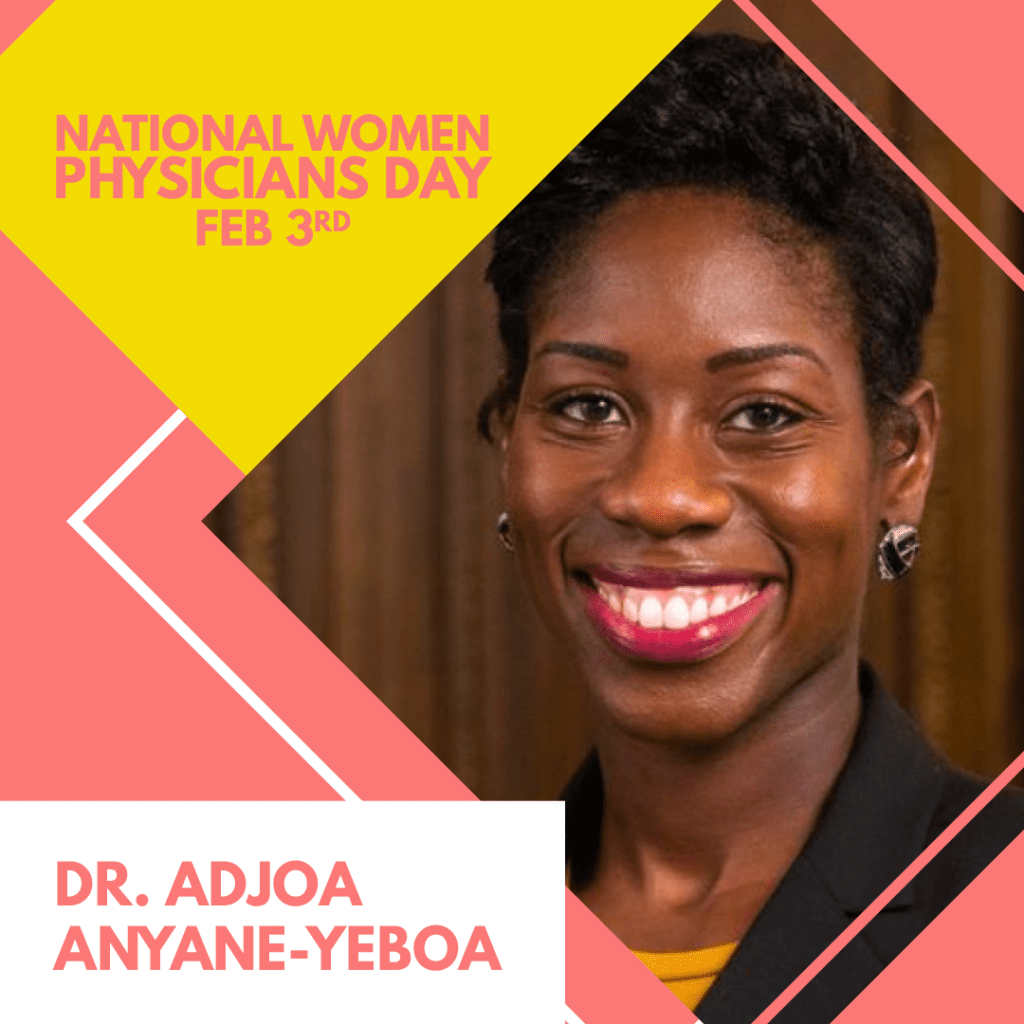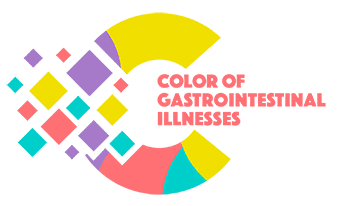In honor of Nation Women Physicians Day, we’re highlighting a group of amazing physicians in gastroenterology, surgery, and internal medicine who are also big supporters of COCCI. Learn more about who they are and why they chose their fields.

Dr. Jacquelyn S. Turner
Section Chief, Colon and Rectal Surgery, Tulane University School of Medicine
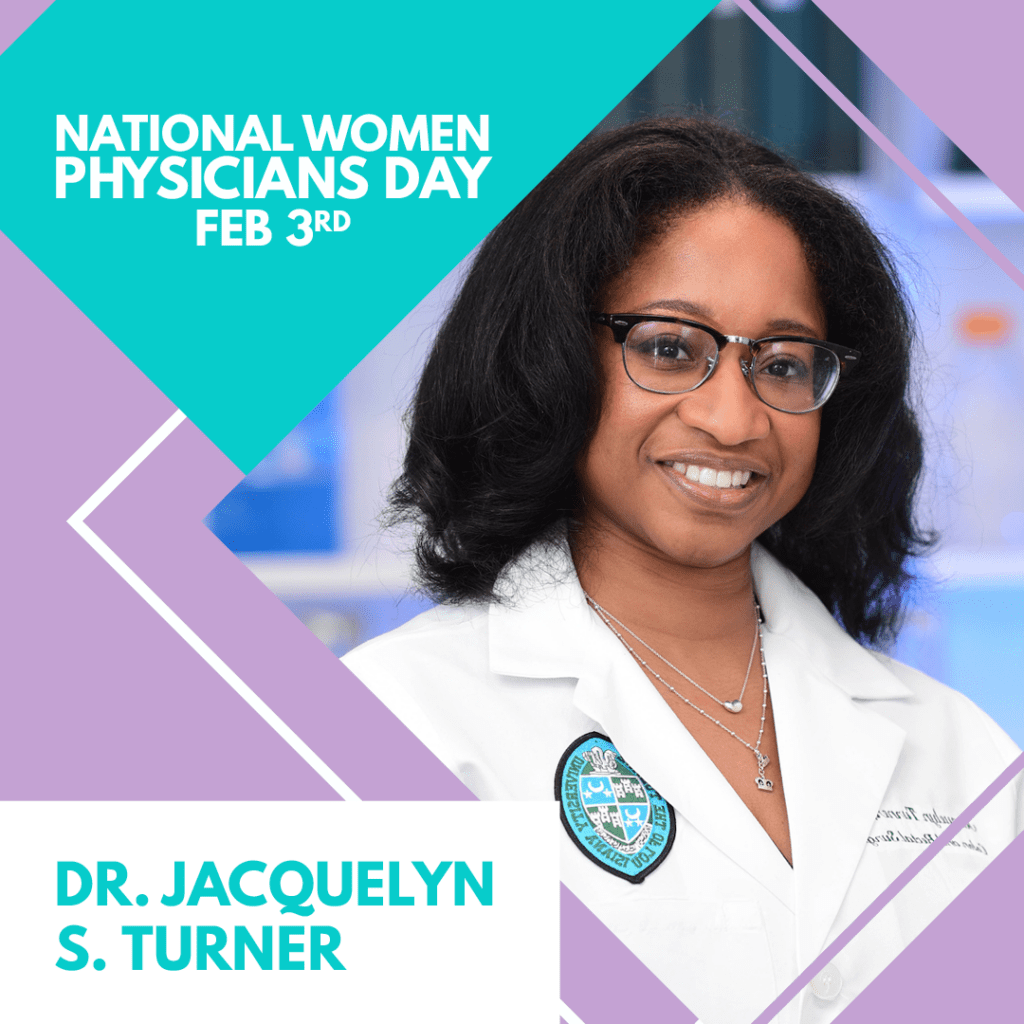
What sparked your interest in becoming a physician?
I felt like I wanted to become a physician from an early age. I cannot recall exactly what sparked the feeling. However, I do remember playing with the Mattel doctor’s bag and plastic stethoscope as a child. When my father bought me a real stethoscope when I was in elementary school I was so excited. I knew then that a field in medicine was something that I wanted to do. I was blessed to have both my parents nurture my dreams along the way supporting me as I participated in various health-related activities (such as volunteering at the local hospital and getting me into summer premed programs) throughout my career.
Why did you choose gastroenterology?
I’m actually a colon and rectal surgeon. I decided on a career in surgery while completing my third year clerkship rotations in medical school. I immediately gravitated towards understanding and using human anatomy to treat certain diseases. I consider it an honor and a privilege to have the opportunity to perform operations on my patients. The surgeon-patient relationship is very unique and is something that I recognize as so. I chose colon and rectal surgery as a career in part due to having great colon and rectal surgeon mentors while in residency. Furthermore, understanding of the gastrointestinal tract came natural to me. Therefore was instinctive for me to go into colon and rectal surgery.
What advice would you give to young women who are interested in the field of gastroenterology?
Women are often the minority gender in many specialties including gastroenterology and colon and rectal surgery. I feel that women physicians provide a unique perspective on how to connect and treat certain patient populations. At times the nurturing side of me, as being a woman, allows me to be more than a doctor but also a counselor, a social worker, and a patient care coordinator. And at times, my patients with gastrointestinal diseases need this reinforcement more than ever.
I would love to see more women in these fields because I have also witnessed the same characteristics with other women providers. Therefore, I would definitely encourage women to go into both gastroenterology and colon and rectal surgery.
Can you share one way that patient advocacy is impacting your work and/or the GI community?
I honestly would like to do more patient advocacy and outreach. I feel that the disparities in health related, clinical outcomes is not all related to biologic factors but rather it is also associated with lack of education and lack of access to resources. Therefore, educating the community and putting in effort to provide resources is vital for clinical outcomes. Until I can help establish and/or improve local, regional, and national programs, I work as an advocate for my patients on an individual basis. This is where, as a nurturing physician, I choose to spend the extra time it takes to make sure that not only my patients’ medical needs are met, but also that they get the social support they need to complete their medical treatment plan.
Dr. Judith Volcy
Chief of General Medicine, Associate Professor of Medicine, Morehouse School of Medicine
What sparked your interest in becoming a physician?
My mother was an operating room nurse. She would often come home and tell us stories about her day and it always seemed exciting. I was not one of those people who always knew I wanted to be a doctor since I was knee-high to a grasshopper. I wanted to explore what interests me and then take it from there. I decided that I could picture myself helping others get better and I felt that I would like to devote my career to this. I was less sure of whether I could pass the classes. That almost prevented me from pursuing my dream. It was my mother who encouraged me and gave me the support by telling me she does believe I could do it. Believe it or not, just hearing that from someone I love and admired gave me the courage to pursue it. I also reasoned that anything worth doing takes hard work and sacrifice to get to your goal.
Why did you choose internal medicine?
I love solving mysteries. I find that internal medicine is like constantly solving mysteries by finding clues and piecing them together. It’s the same reason why I love watching murder mysteries. As I went through my third year of medical school, I knew I loved internal medicine but again, I wasn’t sure if I was smart enough to be successful. At the end of the third year, I realized that internal medicine was my true love and I was willing to work hard and study to be the best internal medicine doctor I could be for my patients. Now, 23 years after completing residency and as I continue practicing internal medicine, I am still just as in love with the field of internal medicine as I was the first day I started.
What advice would you give to young women who are interested in the field of primary care?
Women are natural nurturers. As a primary care doctor, we make sure our patients are well cared for and keep them healthy and out of the hospital. We travel on this journey called life along with our patients. It is an honor to be a part of that. We have the privilege of seeing our patients’ families grow and evolve. We evolve with them. As a mother of two young adult sons and a wife, the outpatient schedule is well-suited to family life. You get to spend the weekends and holidays with your family rather than in the hospitals. That is important.
Can you share one way that patient advocacy is impacting your work?
By advocating for our patients, I make sure to push everyday to reduce health disparities and advance health equity. I try on a daily basis to point this out to member of the community.
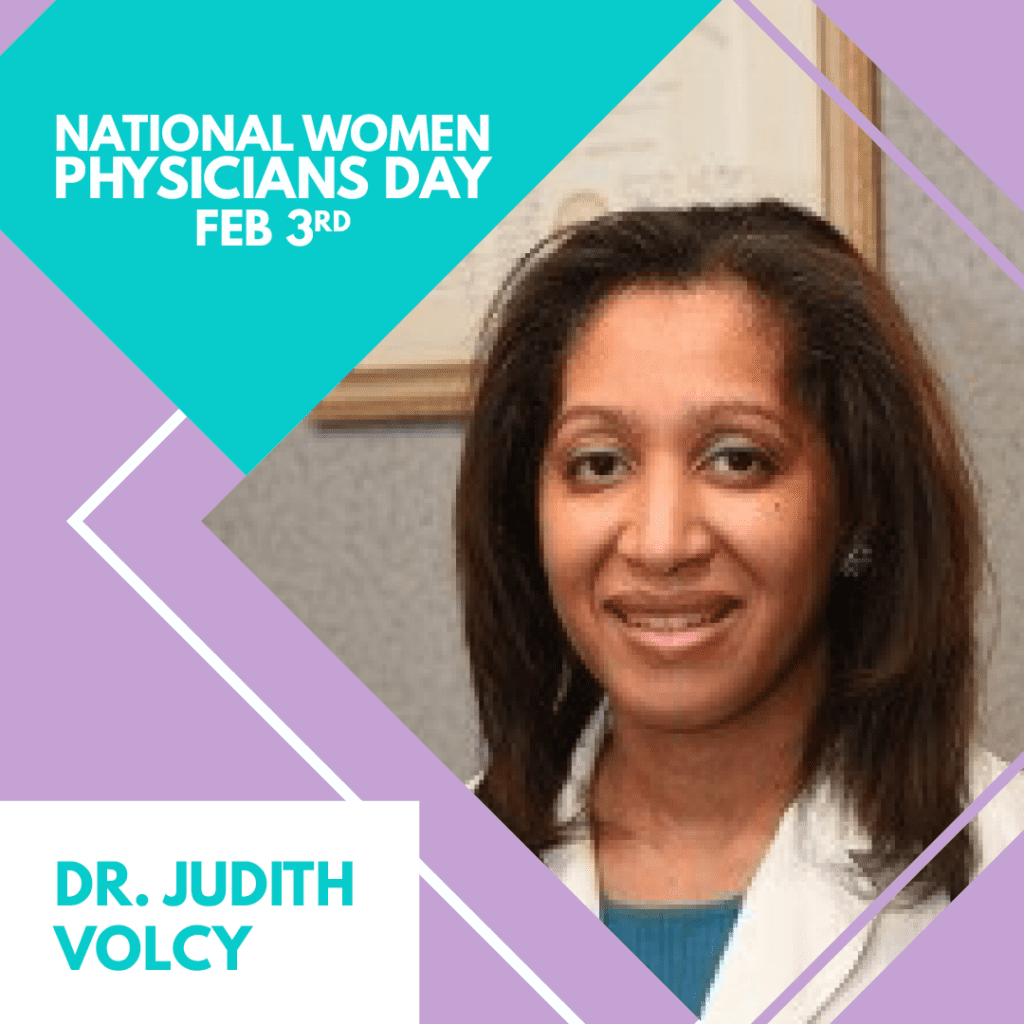
Dr. Leybelis Padilla
Gastroenterologist, Naval Medical Center San Diego
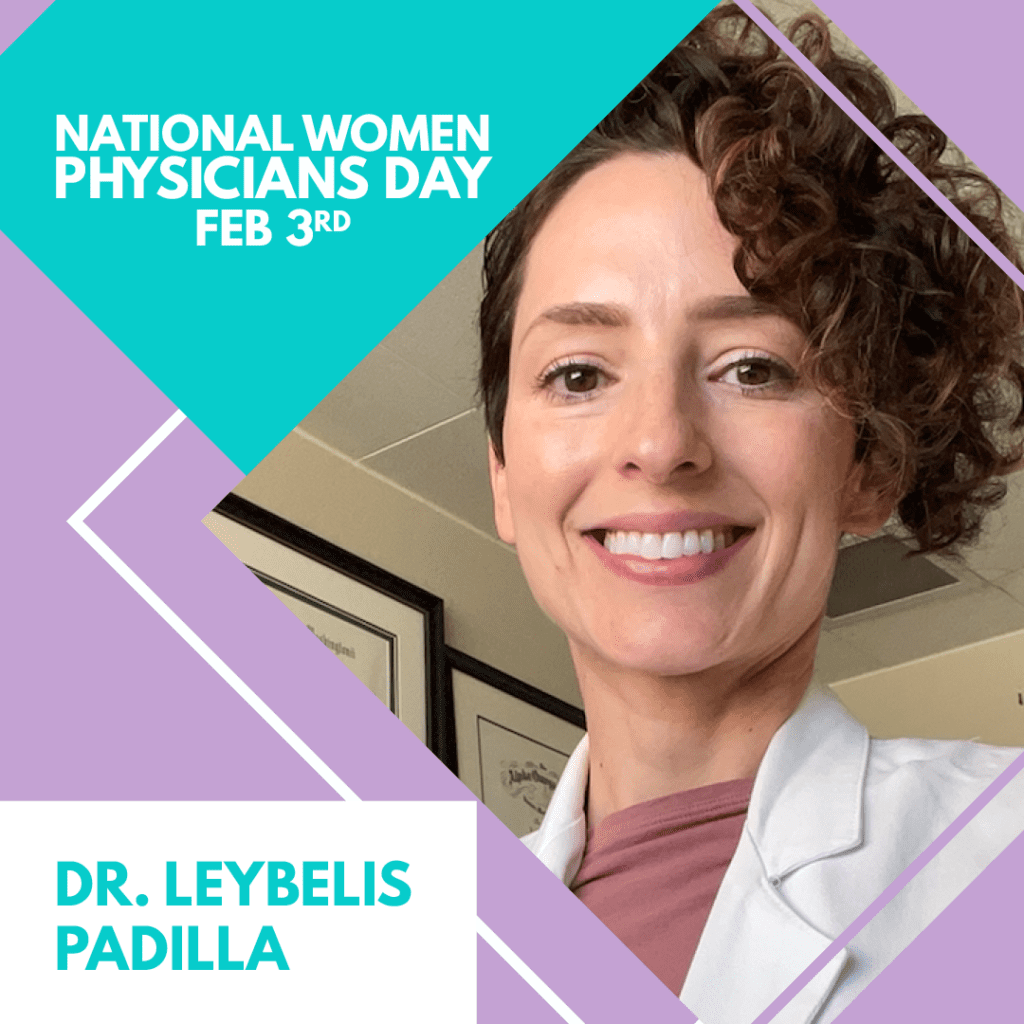
What sparked your interest in becoming a physician?
I had always known I wanted to help people and being from Puerto Rico the few images I had been exposed to as a way to be able to do that with some degree of financial stability was to become a physician. I also knew that I wanted to be helpful to my own family in case of a crisis and by becoming a physician, that was one sure way to be “helpful” at least in the case of a medical crisis. This is what led me to the field of Internal Medicine, because I knew I would at the very least be familiar with a wide range of medical issues. I enjoyed the options that Internal Medicine gave me in cultivating my future career path in medicine; there is a lot of flexibility in that.
Why did you choose gastroenterology? I grew up playing lots of video games. I was all about first person games including Golden Eye, Call of Duty, you have it. Let’s face it, doing Gastroenterology procedures has a lot of parallels to playing a video game! So naturally, I gravitated to a procedural subspecialty. Because I have always been very health conscious, focused on nutrition, and very appreciative of concepts such as food is medicine and lifestyle medicine, Gastroenterology really is the leader in this space, and I wanted in.
What advice would you give to young women who are interested in the field of gastroenterology?
I think sometimes many women choose career paths or medical specialties based on the years of training involved when deciding on what residency to choose. Women make sacrifices that are unlike our male counterparts as we are conscious of family planning goals that may affect our decisions. No one wants a training path that takes 6 years to get there, when they can choose one that only takes 3. And I think it’s probably the biggest mistake to make. Honestly, I had almost not chosen Gastroenterology at the last minute; I almost didn’t submit my application. Had it not been for a good friend to encourage me to just do it, I probably wouldn’t be here and wouldn’t be living my life to its fullest potential.
I realized very quickly in my training that although medical training/residency paths can vary greatly, it’s more important to choose a path envisioning what you want your life to be in 10-20 years. You can have kids and a family in training. Many of us are doing it or have done it. It’s not only possible, but even encouraged in many programs now. So I want to tell young women that anything is possible once you have made the choice.
Can you share one way that patient advocacy is impacting your work and/or the GI community?
I love giving game. Empowering patients with what to ask, how to ask, and what to do in their GI journey is such a passion of mine.
It’s now affecting my entire career plans. I am in the middle of developing an app for patients with IBD and it’s all about patient empowerment through mindset, nutrition, and cultivating healthy habits that are sustainable. I can’t wait to share more when it’s all finalized!
Dr. Sophie Balzora
Gastroenterologist, NYU Langone
Co-Founder, Association of Black Gastroenterologists and Hepatologists (ABGH)
What sparked your interest in becoming a physician?
I come from a family with careers steeped in health care, so it always seemed like an obvious choice at first. But ultimately, the potential to have such a profound impact in a person’s life, in big and small but intimate ways, is not something I saw in a lot of other professions.
Why did you choose gastroenterology?
There aren’t many women in GI. And by extension, very few Black women in GI. These realities, coupled with seeing loved ones really struggle with everything that a chronic digestive disease involves, particularly inflammatory bowel disease, made the decision to choose the field of GI quite clear.
What advice would you give to young women who are interested in the field of gastroenterology?
Go for it! Ignore the naysayers, the doubters, and the negative energy that can be so easy to internalize; instead, drown those voices out, and go after what you want if it truly is a career in gastroenterology.
Can you share one way that patient advocacy is impacting your work and/or the GI community?
The perspective that patient advocacy groups and organizations provide is critical — it is required to advance the field and drive quality patient care; though only for a short time, my involvement in the non-profit space makes it increasingly evident that the work we do as a NFP is really a complement to the invaluable impact that patient advocacy organizations provide to their communities, to GI research, and on how we care for patients, especially to those most at-risk and vulnerable.
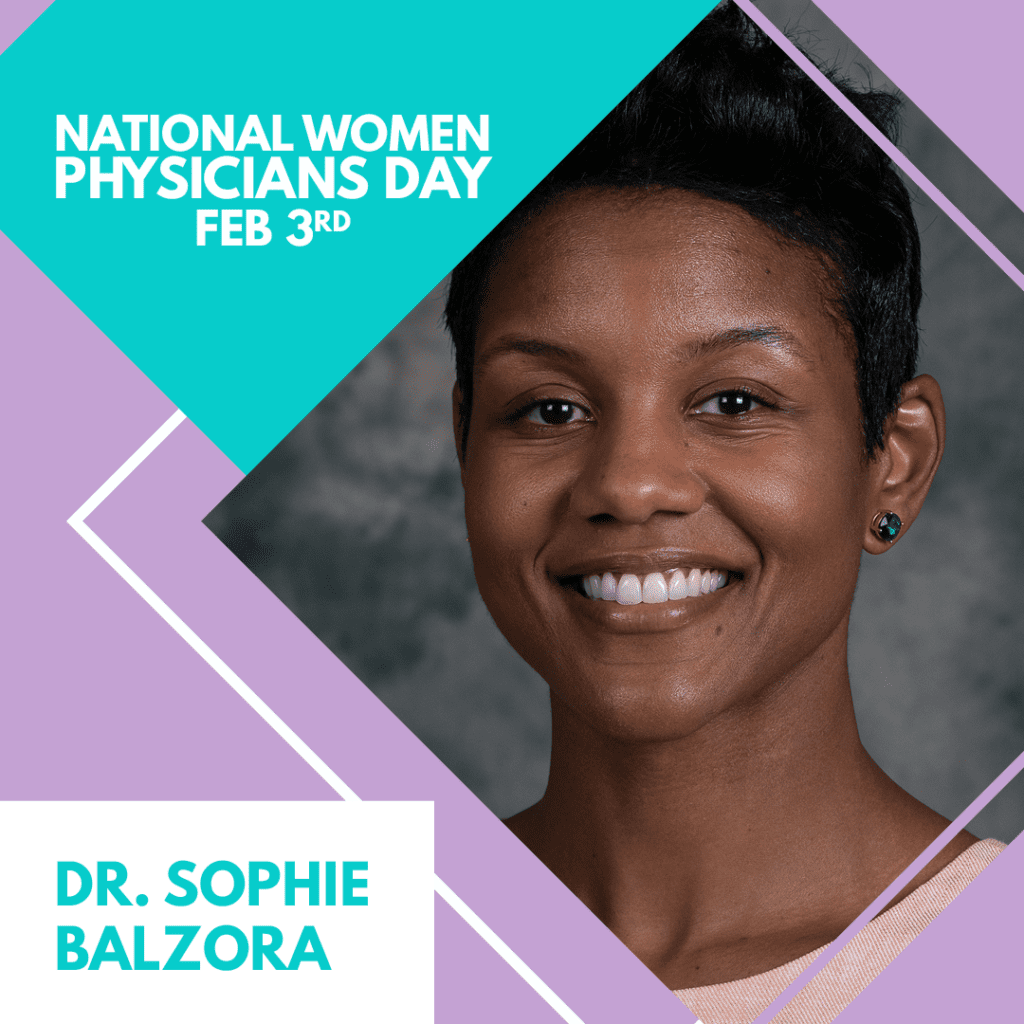
Dr. Sarah Glover
Professor of Medicine, Digestive Diseases, University of Mississippi Medical Center
*Transitioning to Tulane in May 2023
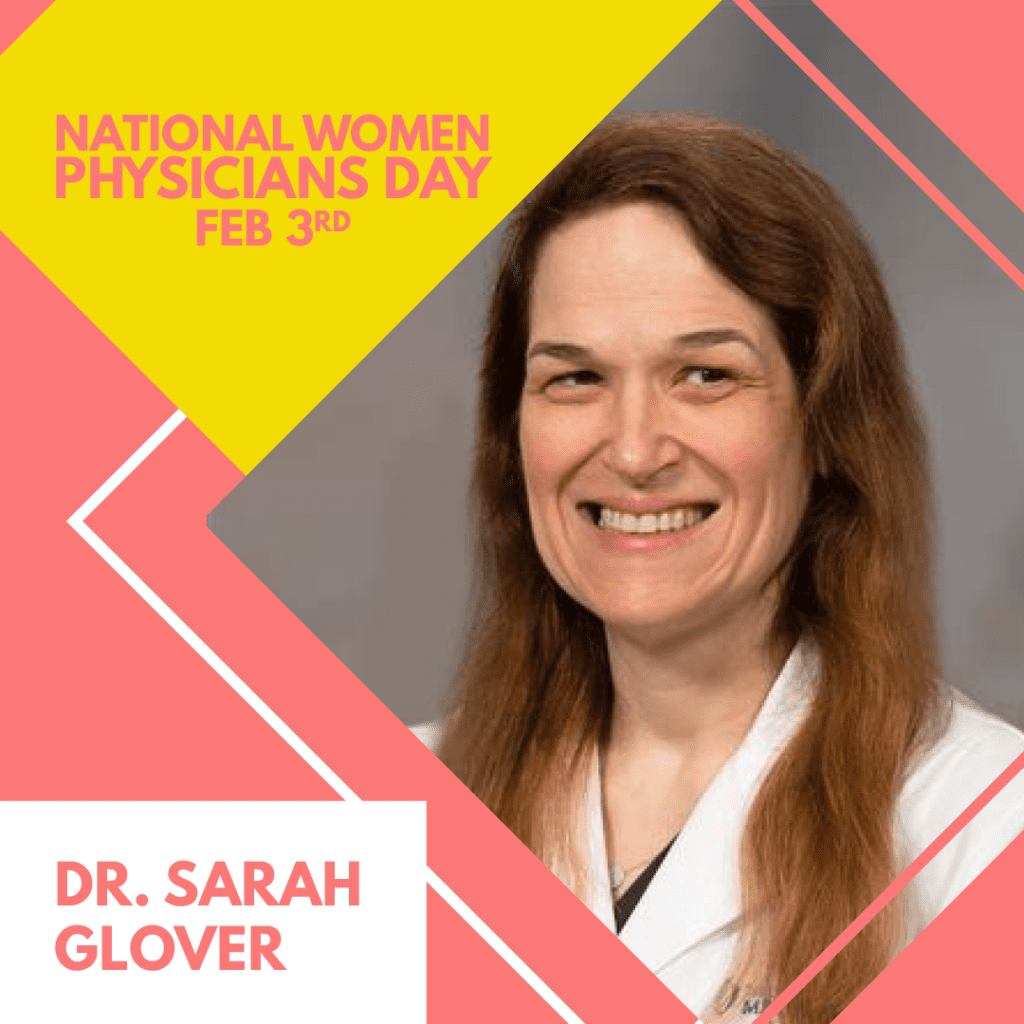
What sparked your interest in becoming a physician?
In the beginning, I thought I wanted to be a lawyer like my dad. He was a federal judge. I took a law class in high school and disliked it. I was fascinated by both the art and science of medicine. Perhaps I always knew I wanted to be a physician scientist.
Why did you choose gastroenterology?
Gastroenterology chose me. I actually had a hematology oncology fellowship lined up. But there was a T32 spot available and it was the perfect fit. This was a critical decision in my career. I am both a very clinically active IBD doctor and an NIH funded physician scientist. My lab studies innate immune mechanisms of GI inflammation.
What advice would you give to young women who are interested in the field of gastroenterology?
Chose a field you enjoy. Find sponsors and mentors who will help you grow. Be open to change and understand that you will have challenges. Find your tribe and support each other.
Can you share one way that patient advocacy is impacting your work and/or the GI community?
Patients like to know they are not alone. They find comfort and gain insight into their disease from their peers.
Dr. Adjoa Anyane-Yeboa
Gastroenterologist, Massachusetts General Hospital
What sparked your interest in becoming a physician?
I decided in my senior year of high school that I wanted to be a physician. I knew early on that I wanted to pursue a career where I could improve the lives of others. I initially thought that I wanted to pursue a career in policy or law, but later realized that the impact that I hoped to make on others was through the field of medicine. Also, my father is a physician, so that may have impacted me as well. He has always been a role model who illustrated to me that a career in medicine was possible for me, and that there was nothing that I couldn’t do or achieve if I set my mind to it.
Why did you choose gastroenterology?
When I was in medical school, I chose internal medicine in my 4th year because I was attracted to the “art” of medicine. No patient was like the last and there were oftentimes more than one way to care for the patient in front of you. I later chose gastroenterology because this was the field that I simply loved the most.
As a trainee, I remember being on my gastroenterology rotation and being excited to come home, read, and learn more. That’s how I knew. I also thought that the gastroenterologists I was exposed to early on were so laid back and fun. I realized that these were my people; I could envision them as my colleagues in the future. Gastroenterology is still as much fun today as it was then.
What advice would you give to young women who are interested in the field of gastroenterology?
There is a dearth of women in gastroenterology, especially underrepresented minority women. I would say to keep going. We are slowly increasing in number and there are a community of us out here to support you.
Can you share one way that patient advocacy is impacting your work and/or the GI community?
One thing that has been incredibly important for me is to include the patient’s voice, wants, needs, and perspectives in the work that I do. In one of my current research projects, we have included a patient advisory board to oversee the development of materials and ensure that patient needs and perspectives are being addressed. If our aim is for our work to impact and improve care for patients, then it’s important that we hear what matters most to them.
